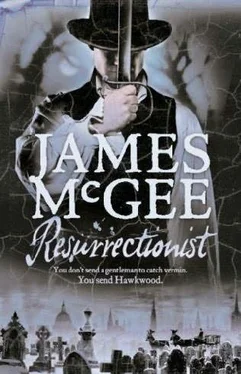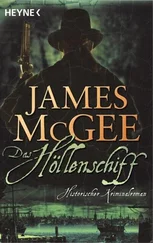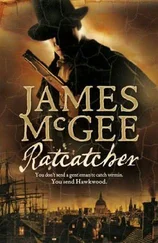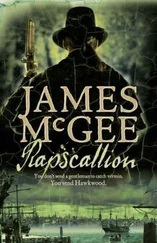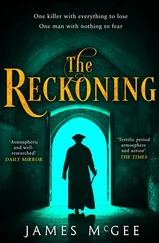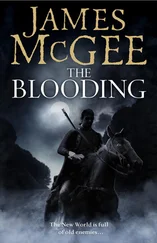James McGee - Resurrectionist
Здесь есть возможность читать онлайн «James McGee - Resurrectionist» — ознакомительный отрывок электронной книги совершенно бесплатно, а после прочтения отрывка купить полную версию. В некоторых случаях можно слушать аудио, скачать через торрент в формате fb2 и присутствует краткое содержание. Жанр: Исторический детектив, на английском языке. Описание произведения, (предисловие) а так же отзывы посетителей доступны на портале библиотеки ЛибКат.
- Название:Resurrectionist
- Автор:
- Жанр:
- Год:неизвестен
- ISBN:нет данных
- Рейтинг книги:4 / 5. Голосов: 1
-
Избранное:Добавить в избранное
- Отзывы:
-
Ваша оценка:
- 80
- 1
- 2
- 3
- 4
- 5
Resurrectionist: краткое содержание, описание и аннотация
Предлагаем к чтению аннотацию, описание, краткое содержание или предисловие (зависит от того, что написал сам автор книги «Resurrectionist»). Если вы не нашли необходимую информацию о книге — напишите в комментариях, мы постараемся отыскать её.
Resurrectionist — читать онлайн ознакомительный отрывок
Ниже представлен текст книги, разбитый по страницам. Система сохранения места последней прочитанной страницы, позволяет с удобством читать онлайн бесплатно книгу «Resurrectionist», без необходимости каждый раз заново искать на чём Вы остановились. Поставьте закладку, и сможете в любой момент перейти на страницу, на которой закончили чтение.
Интервал:
Закладка:
Hawkwood pulled his coat back on and the clerk muttered under his breath as yet more meltwater dribbled from the coat’s hem on to the floor beneath.
“Sorry, Ezra — I didn’t catch that.”
Twigg nodded towards Hawkwood’s feet. “If I were you, I’d clean my boots. Where you’re going, they won’t take kindly to mud on their carpet.”
Twigg wasn’t wrong, thought Hawkwood, as he was shown into the grand, high-ceilinged room. The expression on the face of at least one of the men facing him hinted that his presence was an imposition. Nothing new there, then, he thought, not without an element of satisfaction.
“Ah, Hawkwood.” James Read stepped forward. There was no welcoming smile, just the vocal acknowledgement of his arrival.
Two other men occupied the room. One was standing by the window, the other was seated in a chair by the fireplace. They turned towards him. It had been the man by the window who had cast a dour look at the marks Hawkwood’s boots had left on the rug.
During all parliamentary sittings, a Runner was required to be on duty in the lobby of the House of Commons. The task was rotated among the squad; some considered it to be light, if unexciting, work, and were content to be away from the streets, but it wasn’t a job Hawkwood enjoyed. He found the proximity of so much hot air excruciating and was more than happy to trade places. As a consequence of being so close to the chamber, however, he had become familiar with many of its occupants, including the Home Secretary, Richard Ryder, although the two of them had never been formally introduced.
“Home Secretary,” Read said. “Allow me to present Officer Hawkwood.”
Ryder nodded, his face solemn. He was a relatively young man, only a few years older than Hawkwood, with thinning hair and watchful eyes. “Officer Hawkwood. Yes, I recognize you from the House.”
Hawkwood wondered if that was true or whether Ryder was just being icily polite.
Read turned back and indicated the man by the fireplace.
“This is Surgeon-General McGrigor.”
The Surgeon-General was perhaps four or five years younger and slightly leaner in the face than the Home Secretary, though both men had the same air of authority about them. Ryder, Hawkwood knew, was from an aristocratic family. McGrigor came from merchant stock.
McGrigor stood up and held out his hand. “Grand to meet you, Hawkwood.”
“You, too, sir,” Hawkwood said. He could see the Home Secretary was puzzled by the Surgeon-General’s enthusiasm.
“We’ve not met, though I know of Captain Hawkwood from my brother-in-law’s letters,” McGrigor explained in a soft Highland lilt. “They fought together in Spain.”
Ryder looked momentarily nonplussed until McGrigor took pity on him. “Captain Colquhoun Grant.”
“Ah, yes, of course,” Ryder said. He threw Hawkwood a look, obviously as intrigued by the reference to Hawkwood’s rank as he was by his indirect relationship with the Surgeon-General.
“How is the captain?” Hawkwood asked.
McGrigor smiled. “Still giving the Frogs a good run for their money, you’ll be pleased to hear.”
Hawkwood hadn’t seen Grant for over two years, not since leaving Spain. Grant was Wellington’s chief intelligence officer, operating behind enemy lines, providing Wellington with details on the disposition of French troops and equipment. He worked closely with the Spanish guerrilleros.
It had been Grant who’d persuaded Wellington to employ Hawkwood as a liaison between the resistance fighters and British intelligence units. Hawkwood’s fluency in French and Spanish had proved invaluable. He’d fought alongside the guerrilleros, deep in the mountains, passing additional information to Grant whenever he could. When Hawkwood returned to England, it had been Grant, through his contacts in Horse Guards and Whitehall, who’d provided the rifleman with the necessary references, enabling him to take up his role as a Bow Street officer.
“So, gentlemen,” James Read said, “to the matter in hand.”
The Surgeon-General made a gesture of apology for the diversion and sat down again. Ryder remained by the window. Hawkwood was left standing, as was Read, who went and joined McGrigor by the fire. There was a guard in place, Hawkwood noted with inner amusement.
Read addressed Hawkwood. “I’ve advised Home Secretary Ryder and the Surgeon-General of our interest in Colonel Hyde’s background. That is why they have agreed to meet with us.”
Looking at the three men, Hawkwood wondered about the authority wielded by the Chief Magistrate that he could, with remarkable ease, interpose himself between a member of the cabinet and Wellington’s chief medical officer in a government office deep in the heart of Whitehall. He decided there were still aspects of James Read’s sphere of influence that would remain for ever a mystery and that it was probably unwise to broach too many questions on the subject.
Hawkwood saw that both Ryder and McGrigor were looking at him expectantly. So that was the way it was going to be, he thought. They weren’t going to volunteer information; he would have to delve for it. He’d warned Read he might have to step on some toes. Well, there was no time like the present.
“Why was Colonel Hyde held in Bethlem Asylum? It wasn’t because he was melancholic, was it?”
Both men, Ryder in particular, looked taken aback by the bluntness of Hawkwood’s question. It was McGrigor who recovered first. With a sideways glance towards the Home Secretary, he sat forward. “I take it you have some knowledge of the colonel’s medical background and his army career?”
“Not as much as we’d like,” Hawkwood said.
“Colonel Hyde ran field hospitals in the Peninsula. Guthrie reckons he was probably the bravest surgeon he’d ever met. Hyde was considerably older, of course, much more experienced. Guthrie said he watched Hyde treat wounds that would have made other surgeons hold up their hands in horror. The man’s knowledge of anatomy was astonishing.”
Hawkwood knew Guthrie. He’d met him once. For his age, the young Irishman was rated as one of the army’s best surgeons. He’d begun his military career as a hospital mate in Canada. He had the ear of Wellington.
The Surgeon-General’s face clouded. “You know Colonel Hyde and I served together in the West Indies?”
Hawkwood nodded.
“We met again after the troops returned from Corunna. I was Deputy Inspector of Hospitals for the southwest. It was my job to procure beds for the wounded. I saw the changes in him then. There were times when he appeared more than a little distracted. I put it down to the work. We’d talk about the war; the effect it had on men’s lives. We’d discuss medicine and surgery, of course, and how things were changing, and what the future held. It’s true to say that I found some of his views rather fanciful.”
“In what way?”
McGrigor pursed his lips. “He saw the human body as a form of machine, and believed that it could be mended by taking working parts from other machines. We’re already doing it with teeth, he’d say, why not skin or blood and bone? Why not the liver or the bladder, or even the heart?”
With a shake of his head, McGrigor went on: “When I suggested that such a thing would go against the laws of God, he said that when a wounded soldier’s lying on a hospital table, God has nothing to do with it. It’s the surgeon who’s wielding the knife.” The Surgeon-General paused. “I thought it was nothing more than random musings. But when he was in Oporto, there was some talk.”
“Talk?”
“Murmurs really, nothing more, that some of the colonel’s operating procedures were becoming a little… unconventional. There was no basis, at least as far as we could tell. Certainly, there were no reports of mistreatment from either the British or French casualties.”
Читать дальшеИнтервал:
Закладка:
Похожие книги на «Resurrectionist»
Представляем Вашему вниманию похожие книги на «Resurrectionist» списком для выбора. Мы отобрали схожую по названию и смыслу литературу в надежде предоставить читателям больше вариантов отыскать новые, интересные, ещё непрочитанные произведения.
Обсуждение, отзывы о книге «Resurrectionist» и просто собственные мнения читателей. Оставьте ваши комментарии, напишите, что Вы думаете о произведении, его смысле или главных героях. Укажите что конкретно понравилось, а что нет, и почему Вы так считаете.
